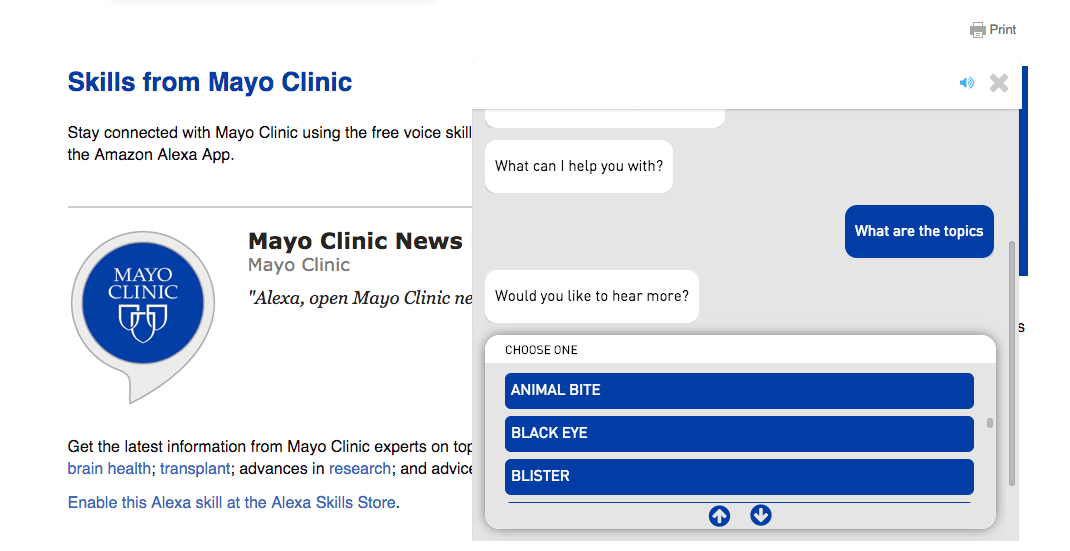
– Global chatbots in healthcare market to reach $498M at a compound annual growth rate (CAGR) of 26.29% between 2019 and 2029.
– Factors driving the growth of the chatbots in healthcare market is the rising market penetration of smart devices and improved internet connectivity, need for cost optimization and customer experience enhancement.
– These AI-enabled tools can significantly help healthcare providers prevent losses from missed appointments, thereby saving $200 per missed appointment.
Global chatbots in healthcare market generated $36.5M in revenue in 2018 and is estimated to reach $498.1M with a compound annual growth rate (CAGR) of 26.29% between 2019 and 2029, according to a new market intelligence report by BIS Research. The market intelligence report provides a multidimensional view of the global chatbots in the healthcare market in terms of market size and growth potential. In addition, the research report aims at answering various aspects of the global chatbots in the healthcare market with the help of key factors driving the market, threats that can possibly inhibit the overall market growth, and the current growth opportunities.
Factors Driving Adoption of Chatbots in Healthcare
Factors driving the growth of the chatbots in healthcare market are the rising market penetration of smart devices and improved internet connectivity, need for cost optimization and customer experience enhancement, and advancements in NLP and speech recognition.
Healthcare Chatbots on the Horizon
Healthcare administration and triage are two major application areas for the healthcare industry and are presently being revolutionized by the incorporation of chatbots. Healthcare chatbots are not only available in form of an application but also accessible while using different social media platforms such as Facebook and Skype. The deployment of chatbots on these platforms provides the developer of chatbot with the latter’s customer base.
The major customer base for the healthcare chatbots are to be patients, followed by the providers and payers. The patient’s usage of chatbots would involve the pre-patient (when the patient is not confirmed to have a disease), patient (disease has been recognized) and post-patient (the patient has been treated for the disease) phases.
These AI-enabled tools can significantly help healthcare providers prevent losses from missed appointments, thereby saving $200 per missed appointment. In the future, chatbots can be seen enabling a smooth patient experience by helping patients in scheduling appointments, issuing reminders for the same, improving medication adherence, and acting as therapists. It has been estimated that the usage of bots for administrative functions can save up to $7 billion in 18 months in insurance provider companies.
Medical Triage Chatbots Holds Largest Market Share
“Medical triage is expected to hold the largest share of the market (38.17%) and grow at a prominent CAGR during the forecast period. However, in terms of growth rate, patient engagement is likely to grow at the highest CAGR during the forecast period. In terms of deployment model, cloud model chatbots are expected to grow at a significant CAGR of 27.43% during the forecast period. This growth rate is primarily due to consumer preferences, as these solutions liberate the user from application hosting as well as from maintenance and security aspects.”
Triage Chatbots Likely to Replace Non-Emergency Hotline Services
Triage chatbots are also likely to replace non-emergency hotline services. For example, U.K’s National Health Service is conducting a trial of Babylon Health’s (a leading telemedicine startup) triage chatbot to see its potential to replace NHS 111, a non-emergency phone hotline staffed by call center workers, who are not necessarily medical professionals.
In recent years, medical hotline services have come under extensive scrutiny for being inefficient and expensive, costing taxpayers around $20 per call. There is a huge cost-saving opportunity associated with the use of chatbots in healthcare. It can save up to $2-5 million for the emergency department of the hospital itself.
